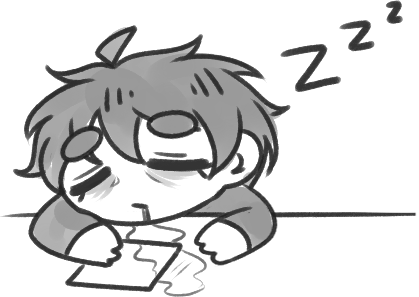Why you need the full nine to 10 hours for finals:
December 12, 2016
- Ever taken a test with a headache or cough? Sleep releases hormones, proteins and chemicals that drive the immune system to battle illnesses like colds and the flu. In one study, researchers compared the number of white blood cells between men who had slept a normal amount and men who were extremely sleep-deprived. The men with more sleep had a higher count of the infection-fighting white blood cells.
- Cortisol, a stress hormone that can hinder memory recall, is regulated by sleep. Sleep also improves memory because it blocks new memories from disrupting old ones and solidifies them according to relevance and importance.

- Lose focus halfway through a test? Extended concentration is another benefit. Sleep-deprived individuals took longer to respond to stimulus and lapsed in attention more often than their healthy-sleep counterparts, according to the Great British Sleep Survey.
- We’ve all been grumpy after a sleepless night: slumber improves mood by decreasing anger, irritability, and stress mismanagement. For example, people with little sleep are more likely to quarrel with others and let their anger overtake them in traffic jams, and less likely to exercise or take part in fun activities in their free time. A positive outlook is especially important during finals because rows of Scantron bubbles tend to have a negative effect on morale, and stressing too much can even be one of the factors toward low performance.
- A nimble brain is a another result of ample sleep, more specifically increased alertness, decision making and even creativity. That way, you’ll know which questions to go back to and how to piece together problem C based on the answer to problem A you know is correct. Due to lack of sleep, people can have lower levels of concentration and, as a result, become confused more easily.

